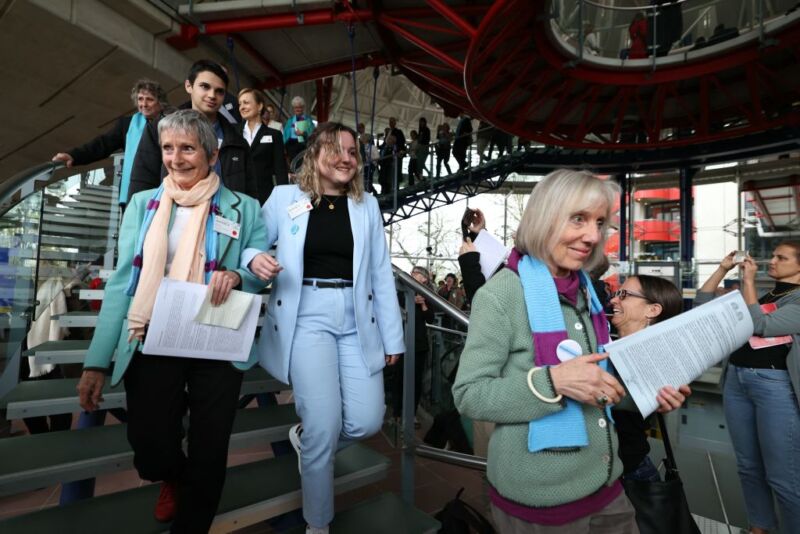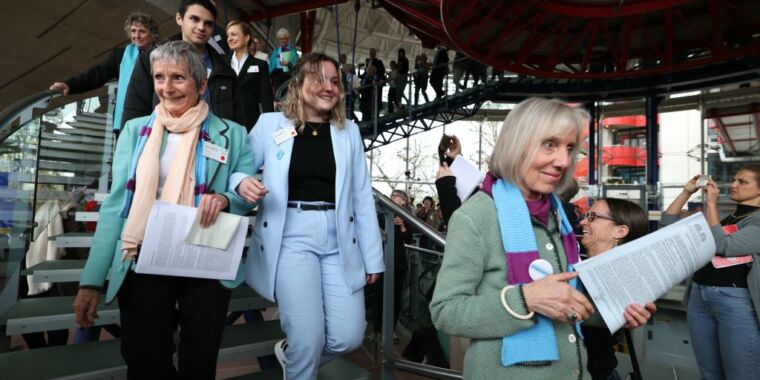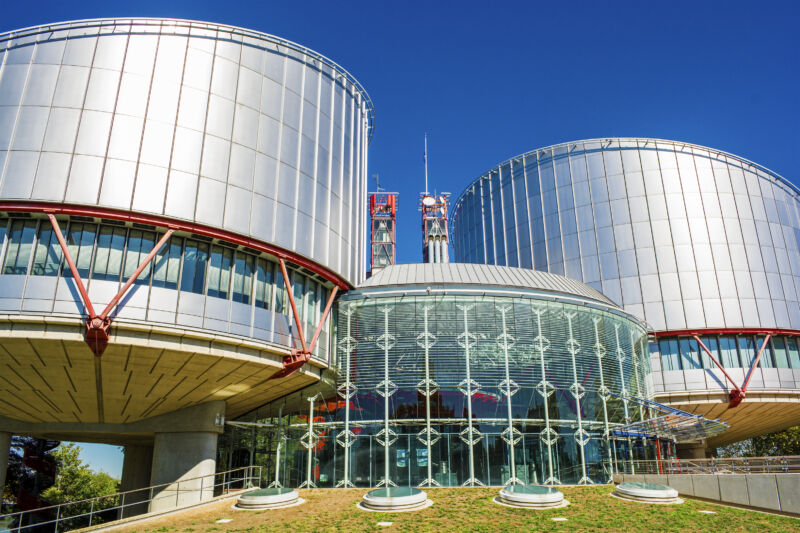2,000 senior women win “biggest victory possible” in landmark climate case

Enlarge / Members of Swiss association Senior Women for Climate Protection react after the announcement of decisions after a hearing of the European Court of Human Rights (ECHR) to decide in three separate cases if states are doing enough in the face of global warming in rulings that could force them to do more, in Strasbourg, eastern France, on April 9, 2024.
More than 2,000 older Swiss women have won a landmark European case proving that government climate inaction violates human rights.
The European Court of Human Rights (ECHR) ruled Tuesday that Switzerland had not acted urgently to achieve climate targets, leading victims, who are mostly in their 70s, to suffer physically and emotionally while potentially placed at risk of dying.
The women, part of a group called KlimaSeniorinnen (Senior Women for Climate Protection), filed the lawsuit nine years ago. They presented medical documents and scientific evidence that older women are more vulnerable to climate impacts, arguing that “their health and daily routines were affected” by Swiss heatwaves connected to climate change.
One woman who had to regularly measure her blood pressure and refrain from activities when temperatures were too high told the court that “the thermometer determined the way she led her life.” Another woman described how isolated she felt when “excessive heat” with “highly probable” links to climate change “exacerbated her asthma and chronic obstructive pulmonary disease.”
“Evidence showed that the life and health of older women were more severely impacted by periods of heatwaves than the rest of the population,” ECHR’s ruling said, noting that during recent warmest summers on record “nearly 90 percent of heat-related deaths had occurred in older women, almost all of whom were older than 75.”
The ECHR ruled that the Swiss government had violated these women’s rights to respect for private and family life under the European Convention on Human Rights by failing to comply with climate duties or to address “critical gaps” in climate policies. Throughout the proceedings, Swiss authorities acknowledged missing climate targets, including by not properly supervising greenhouse gas emissions in sectors like building and transport, and not regulating emissions in other sectors such as agricultural and financial.
“There was a long history of failed climate action,” ECHR’s ruling said.
“This included a failure to quantify, through a carbon budget or otherwise, national greenhouse gas emissions limitations,” ECHR President Siofra O’Leary said, noting in a Reuters report that Switzerland “had previously failed to meet its past greenhouse gas emission reduction targets by failing to act in good time and in an appropriate and consistent manner.”
As a result of the ECHR ruling, Switzerland may be forced to escalate efforts to reduce fossil fuel consumption, CNN reported.
Swiss President Viola Amherd told a news conference attended by Reuters that she would be reviewing the judgment, seemingly defending the country’s current climate actions by saying that “sustainability is very important to Switzerland, biodiversity is very important to Switzerland, the net zero target is very important to Switzerland.”
The court’s judgment is binding, cannot be appealed, and could “influence the law in 46 countries in Europe including the UK,” the BBC reported. Experts told CNN that the case could also influence other international courts, potentially opening the floodgates to more climate litigation globally.
2,000 senior women win “biggest victory possible” in landmark climate case Read More »


